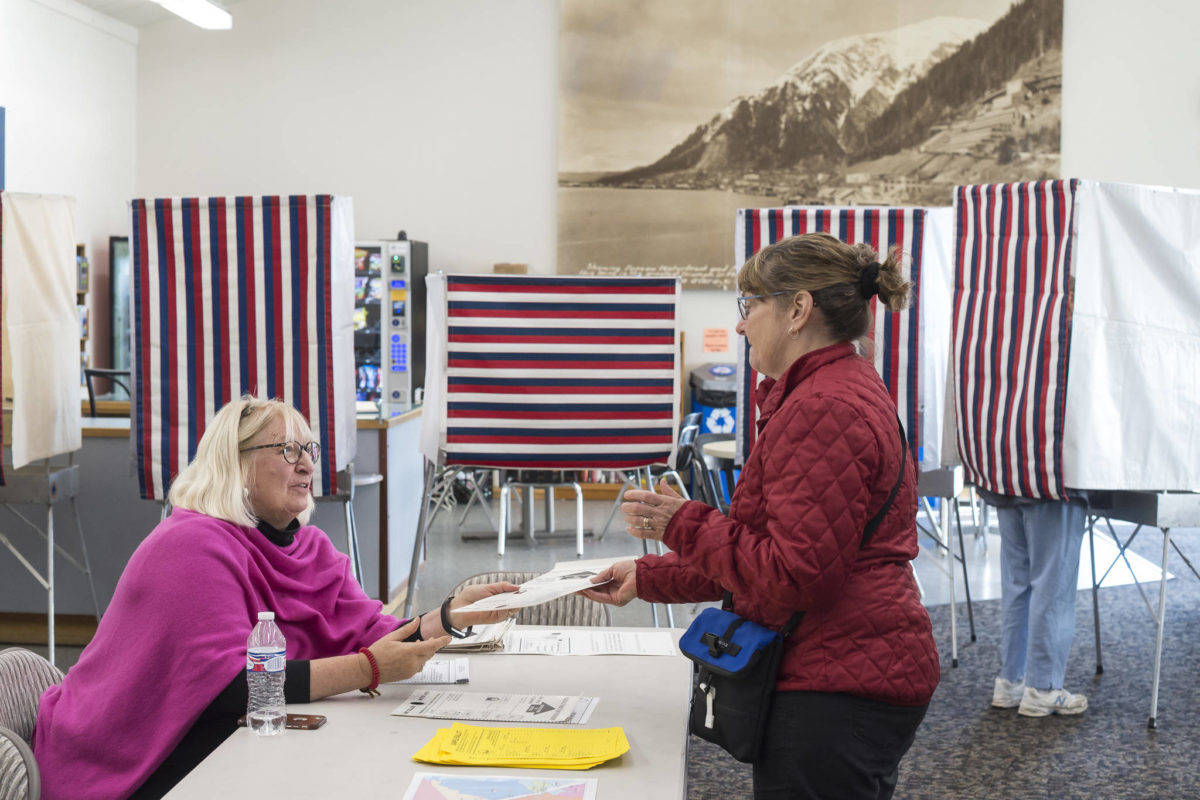Juneau voters don’t have to wait until the Nov. 6 General Election to cast ballots. Starting today, they can do so during business hours at the local election office.
Early, special needs and absentee in-person voting starts today across the state. In Juneau, early and absentee voting takes place at the Elections Office in the Mendenhall Mall Annex and on the 8th floor of the State Office Building from 8 a.m.-5 p.m., Monday-Friday.
Weekend hours open on the Saturday and Sunday before the Tuesday election at the Mendenhall Mall Annex. On Nov. 3, that location will be open 10 a.m.-4 p.m., and noon-4 p.m. on Nov. 4.
Alaska law does not require an excuse for voters to vote early or absentee, but the two ways of voting are slightly different.
Early voting is similar to voting at a polling place on Election Day, but can be done before the election. A voting official will verify your eligibility to vote when you vote early. The official looks up a voter’s name in a list of registered voters and checks that your registration is active and current.
If that checks out, the official will then print off a voter certificate with your information that voters are asked to sign before receiving a ballot.
Absentee in-person voting differs in some of its details from early voting. When voting absentee in-person, a voter’s eligibility is verified after voting, rather than before. Voters are asked to complete an outer envelope with some of their information, which will be placed in a secrecy sleeve and put inside an envelope.
The ballot is returned to the local elections office, where it’s reviewed by election officials. The information voters provide is then used to update their voter registration.
For those who may find it difficult to vote in-person because of illness, age or disability, special needs voting offers a convenient alternative. Voters can elect to have a friend, family member or personal representative pick up and deliver a ballot to them, then bring it back to absentee voting location or to the voter’s polling place on Election Day.
Though it’s a simple process, special needs voting requires a few more steps. A representative visits an absentee voting location, and is asked to complete a form with their information and signature, and the voter’s name. The election worker will then give the representative a special needs envelope, a ballot and a secrecy sleeve to deliver to the voter.
The voter marks the ballot, places it in the secrecy sleeve and secures it in the special needs envelope. The voter is required to complete a second set of information on the envelope and to have the representative witness the voter signing their signature. The ballot must then be returned to a voting location before polls close at 8 p.m. on Election Day.
More information about the many ways to vote can be found at the Division of Elections website at http://www.elections.alaska.gov/Core/voterregistrationinformation.php.

